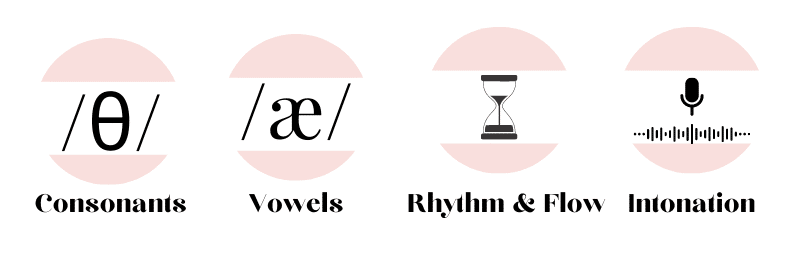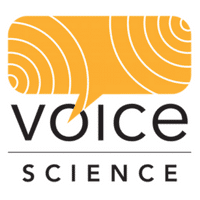6 Ways to Completely Revamp your English by Linking Words
In this blog post, we’ll show you how to immediately polish your English speaking clarity and confidence by simply linking words.

When it comes to English speaking, it’s normal to feel a huge gap between working on pronunciation and linking words to encourage naturalness. You might’ve thought,
‘What can I do to sound more fluent?’,
or maybe,
‘How do I improve my English fluency?’
If this is the case, look no further.
In this blog post, we’ll show you how to immediately polish your English speaking clarity and confidence by simply incorporating linking as a strategy.
FYI 💡
Linking is the secret ingredient that gels the sounds and words together to make your speaking as smooth as butter 🧈. You’ll be impressed by the BIG difference it can make in your personal and professional speaking.
One of the BEST ways to boost your speaking confidence and fluency is… linking! When speaking English, the flow of our speech should be ongoing and continuous. This means that our words in connected speech may sound very different to how we pronounce words on their own – a process called co-articulation. Not only that, connected speech also has different stress and intonation patterns.
Coarticulation 📚
A process in which the pronunciation of a sound is influenced by another sound.
When we pay attention to our linking, it makes it easier for your listeners to tune in to the content of your message (think about your work presentations, social catch-ups, etc), and it makes your speaking feel and sound more natural!
That’s why linking goals should be at the top of the list to improve your command of English pronunciation. Let’s talk about 6 simple linking strategies that’ll make a big difference starting NOW!
Creating lasting changes with your pronunciation
You can create lasting changes in clear and confident English communication that will break the barriers you feel with speaking fluency by including linking as a goal.
This is why we love linking words at Voice Science, and we believe that you will too!
If you need more support and feedback for your speaking? No worries – our team is here to help! At Voice Science, we provide personalised, evidence-based strategies to bolster your command of English pronunciation and linking.

Take the first step today by checking out our Personalised Pronunciation Audit – we provide tailored and comprehensive audits into every single sound of English, speech intonation factors, and speaking fluency. This will help you identify the main bottlenecks that are impacting your speaking. Knowing the importance of linking, we’ll carefully examine your link and flow of phrases and sentences, the process of merging multiple words into single units, and last but not least, the balance between clarity versus linking. We’ve got you covered!
Important Disclaimer 📣
The Aussie Accent is not the only way to speak English.
In fact, in Australia, we have numerous different forms of English pronunciation, and I’d argue that all of them are as legitimate and official as each other.
Your speaking is not inferior if you live in Australia but don’t have an Aussie accent.
Currently, there are more non-native speakers of English than native, so no one can tell you that using a mainstream Aussie accent is the only correct way to speak if you live in Australia.
#1 Connect your words in sentences
When we speak, we don’t have spaces between words like we see on paper. Instead, all of our words in sentences are being produced as a string of sounds. Think of your sentences as having only one long word, and try to merge your words together as you speak. Remember to keep your natural intonation and flow!
#2 Be a copycat linker
Sometimes, the easiest way to learn is through imitation.
Carefully observe the speech patterns of native speakers and try to copy them. Listen and repeat in connected phrases and sentences instead of individual words. You’ll quickly notice that these speakers habitually link their words together in sentences – often without realising it too! The more you practice it, the easier it is for you to internalise it so that when you’re in the next presentation or team meeting, you’ll know that your message can be smoothly and confidently delivered.
If you find it challenging to copy how English native speakers link words, we’ll show you the patterns and rules to follow and you’ll soon hear everything in a new dimension!
#3 If in doubt, use the IPA
The International Phonetic Association (IPA) alphabet is a great tool to help figure out the exact sounds of English that are being used by any speaker. Note down all the sounds you hear in the sentence, then try to link the word boundaries together by joining the sounds together! Put your transcription skills to the test and link away!
Bonus: this strategy also prevents any confusion in spelling.
Think of the pronunciation of the phrase ‘queue up’ (like when you ‘queue up’ at your favourite cafe).
If you pronounce the two words separately, this is how it sounds:
Queue /kjuː/ + Up /ʌp/.
But… when we connect the two words together, the phrase ‘queue up’ actually sounds like this according to the IPA:
Queuewup /kjuːwʌp/
Notice the sneaky /w/ sound that snuck in to help us link this phrase together!
Our team will train you to use phonetics to clarify your English pronunciation sounds and implement new fluency features by connecting words.

#4 Use linking sounds to connect words
If you had a big ‘HUH’ moment after reading through that previous example, don’t fret!
English speakers insert extra sounds between words to help with their linking, and most of the time, they’re not even aware of it.
Like the example above, a linking /w/ sound is used to help transition between vowels
‘I can do it,’ tends to be pronounced as
‘Icando(w)it’ /aɪkənduːwət/
You’ll find that this linking sound (among other linking sounds such as the linking /j/.
‘try(y)it’ /tɹaɪjət/)
The linking /j/ ( ‘y’ sound) will also help you move easily from one word to the next without interrupting the flow of your speech.
#5 Try to de-stress… like the SCHWA /Ə/
English has a very special sound that you want to get close and personal to.
The Schwa /ə/ is often the missing link that your English linking needs!
So if you’ve not learnt how to produce this sound and integrate it- keep reading.
See, the Schwa is a uniquely unstressed sound that is the 💎 hidden gem of linking. Many words that serve a grammatical function tend to be reduced to a schwa (e.g., a, for). By now, you might’ve noticed some of these schwas making their appearances in previous examples already (don’t worry if you need to scroll back up – we’ll happily wait 😉 )
This allows speakers to pronounce these quickly and easily without paying much attention.
Try this:
Try to say this sentence out loud and compare the way ‘to’ is pronounced when we say the words in isolation versus in connected speech:
‘Go. To. The. Shops’
versus
‘Gotuhtheshops’.
When you use the Schwa you also then have the chance to showcase the stressed words more effectively!
Why is this important?
Using accurate emphasis takes the burden off your listener- when the right words are pronounced between Schwa and linked sounds, your colleague can pinpoint the keywords of your message with less effort. After all, we speak for our listeners- if you get the Schwa going more in your speaking, your colleagues will pick up your key points faster.
Don’t believe us? Let’s try it together – think of Bruno Mars’ Grenade – ‘I’d catch a grenade for ya…’ See how many schwas you can spot from that phrase alone! (and check your answers below 👇 )
| Words | Without schwa | With schwa |
| a | /ʌ/, /æ/ | /ə/ |
| for | /fɔː/ | /fə/ |
| you | /juː/ | /jə/ |
| Bonus points: grenade | – |
/ɡrəˈneɪd/ (first part typically produced with a schwa!) |
Full IPA transcription:
‘I’d catch a grenade for ya…’ /aɪd kætʃ ə ɡrəˈneɪd fə jə/
#6 Beware of twinned sounds!
When the same sounds are doubled up in sentences, we tend to only pronounce the doubled sound once. When you do this, it makes the consonant sound a bit longer.* This may happen within words (e.g., ‘unknown’, ‘midday’) or across word boundaries (e.g., ‘feel lucky’, ‘that time’).
The next time you try to join your words together in sentences, keep your eyes out for the sneaky twins!
*But, as always, there are always exceptions to these rules – ‘h’, ‘y’, ‘w’, ‘x’, ‘q’, ‘dg’, ‘ch’.
Get your Pronunciation Assessed by our team
A Complete Audit that you Can Start in 5 minutes from now!
If you want to get some feedback on your English pronunciation, you’ve got to see Your Personalised Pronunciation Audit.
When you enrol you’ll score yourself a total audit into every single sound of English so that you learn which sounds need more work. We’ll also do a fun vocal health survey and spot check aspects of your social communication to make sure you are speaking as comfortably and as confidently as you can.

